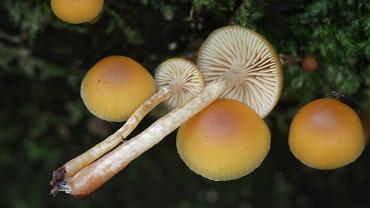
Chinese skullcap (Scutellaria baicalensis) is a botanical that has been used for centuries to support many aspects of human health. This botanical has more than 40 bioactive compounds, including terpenoids, volatile oils, polysaccharides, beta-sitosterol, and flavonoids. Research indicates that Chinese skullcap may support a healthy inflammatory response.
The main bioactive molecules of Chinese skullcap are flavonoids that include baicalin, baicalein, and wogonoside. These flavonoids have been shown to support the inflammatory response by modulating inflammatory cytokines such as interleukin (IL)-1β, IL-6, IL-8, interferon-gamma, and tumor necrosis factor-alpha.
Baicalin has been shown in studies to inhibit the production of reactive oxygen species, inhibit macrophage activation, and increase the expression of superoxide dismutase (SOD). It also has been shown to help attenuate the release of nitric oxide through its ability to downregulate inducible nitric oxide synthase. Baicalin has also been shown to inhibit the expression of cyclooxygenase-2 (COX-2) in certain macrophages, microglia, and lung tissue. In an animal study, baicalin was shown to help inhibit COX-2 expression in the presence of brain injury. In another animal study, baicalin helped attenuate COX-2 expression and parameters related to depression in mice with chronic stress.
The flavonoid baicalein may help downregulate IL-12 and help support healthy levels of SOD. It has been shown in animal studies to support the pulmonary inflammatory response. Baicalein was also shown in animal studies to help prevent macrophage infiltration into certain organs, including the brain, liver, and kidneys. Another animal study showed improvements in lung infiltration of macrophages and neutrophils in the presence of wogonoside.
Nuclear factor erythroid 2–related factor 2 (Nrf2) is a transcription factor that helps the body’s antioxidative status. Flavonoids from Chinese skullcap including baicalein, baicalin, and wogonin have been shown to help induce the expression of Nrf2 through multiple pathways.
An animal study explored the potential role of Chinese skullcap extracts on the inflammatory response. Significant changes in inflammatory cytokine activity were reported after 10 days of intervention. Nuclear factor-kappa B signaling pathways were shown to be inhibited through the mitogen-activated protein kinase and other signaling pathways in the presence of S. baicalensis extracts.
Chinese skullcap has also been shown to support certain aspects of cellular health and healthy cell proliferation. It may also support neuronal health. Although more studies are necessary, especially in the clinical setting, Chinese skullcap may support a healthy inflammatory response and antioxidative status.
By Colleen Ambrose, ND, MAT